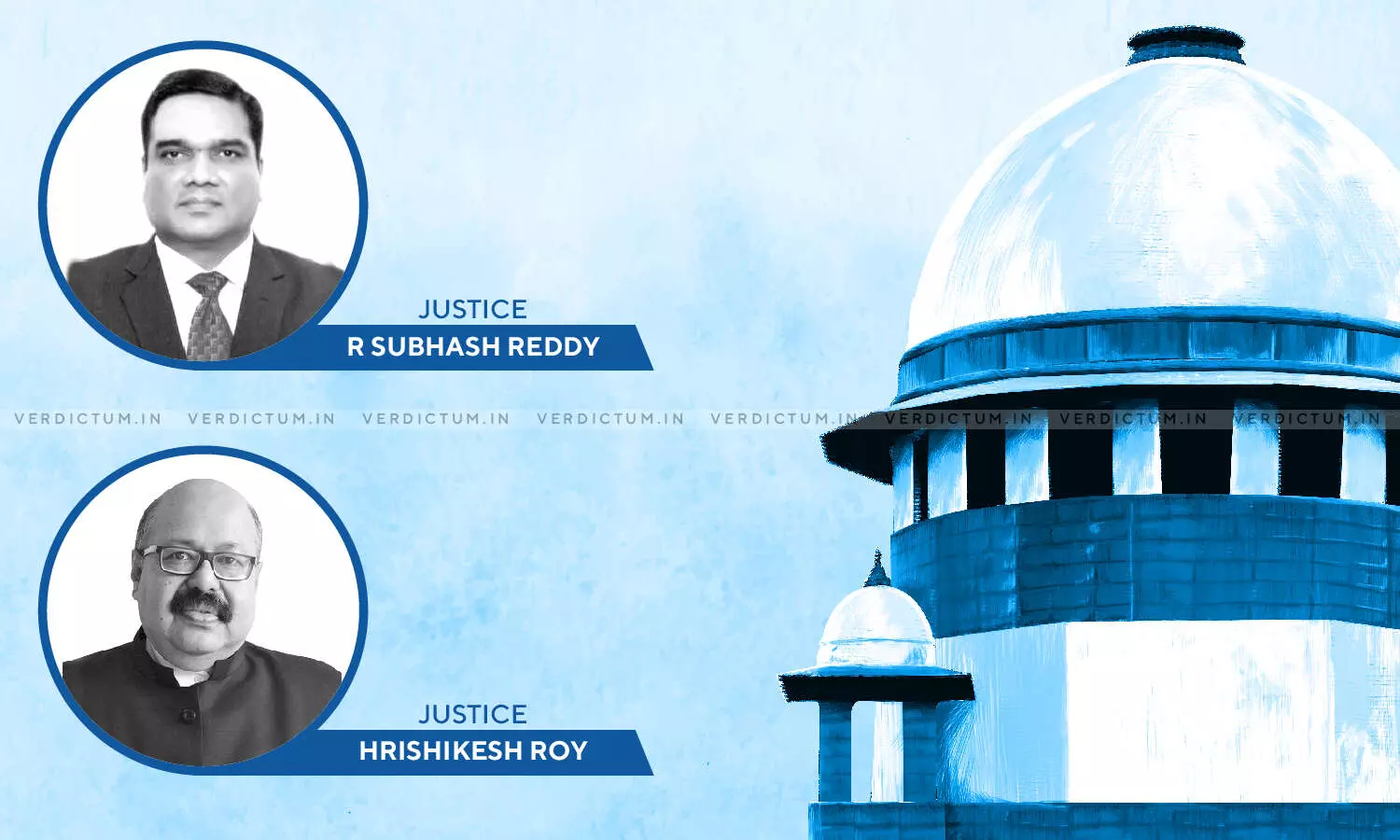
Employees Refusing Regular Promotion Are Disentitled To Claim Benefits Of ACP Scheme – Supreme Court
 |
|A two-judge Bench of Justice R. Subhash Reddy and Justice Hrishikesh Roy has held that employees who have refused the offer of regular promotion are disentitled to the financial upgradation benefits envisaged under it.
In this context, the Supreme Court observed –
In this situation, the Scottish doctrine of "Approbate and Reprobate" springs to mind. The above doctrine is attracted to the circumstances in this case. The concerned employees cannot therefore be allowed to simultaneously approbate and reprobate, or to put it colloquially, "eat their cake and have it too."
Counsel Ms. Meera Patel appeared for the Appellants in both the set of appeals, Counsel Mr. Rajiv Manglik appeared for Respondents in the first set of appeals, Counsel Mr. Piyush Sharma and Counsel Mr. A.P. Dhamija appeared for the Respondents in the second set of appeals.
In this case, the Respondents were claiming the benefit of the Assured Career Progression Scheme (ACP Scheme) for the Central Government Civilian by the Ministry of Personnel, Public Grievances and Pensions, Government of India. The scheme provided for financial upgradation to the next higher grade of pay for those employees who could not get promotions after 12 years of service. The second upgradation is similarly admissible after 24 years of service.
In the first set of appeals, the Respondents who were working as Senior Translator (Hindi) were offered a promotion to the higher post of Translation Officer (Hindi) on regular basis. However, they had refused promotion due to personal grounds. Initially, the benefits of the scheme were given to them but later the same were withdrawn which disentitled financial upgradation under the scheme to those who had refused vacancies-based promotion.
The withdrawal of the benefits under the scheme was on the premise that the employee has refused promotion on multiple occasions, cannot be said to be stagnating as she, of her own volition, had opted to remain in the grade of Senior Translator (Hindi).
Such withdrawal was challenged before the Central Administrative Tribunal (CAT) by the Respondents-Employees of the first set of appeals.
The Tribunal dismissed their Writ Petitions holding that on refusal to accept regular promotion, the employee cannot be considered to be stagnating as she has opted to remain in the existing grade of her own volition.
While the Division Bench of the High Court held that the non-acceptance of promotion would impact their second upgradation only and concluded that employees were righty given the benefit of the first upgradation, which could not have been withdrawn.
In the second set of appeals, the Respondents were also appointed as Senior Translator (Hindi) in the Air Headquarters, however, they were offered the promotion of officiating basis. The decision of the Division Bench of the High Court applied to the second set of appeals also.
i) First set of appeals
The Apex Court noted, "If a regular promotion is offered but is refused by the employee before becoming entitled to a financial upgradation, she/he shall not be entitled to financial upgradation only because she as suffered stagnation. This is because, it is not a case of lack of promotional opportunities but an employee opting to forfeit offered promotion, for her own personal reasons. However, this vital aspect was not appropriately appreciated by the High Court while granting relief to the employees."
Further, the Bench observed, "Consequently, it is declared that the employees who have refused the offer of regular promotion are disentitled to the financial upgradation benefits envisaged under the O.M. dated 9.8.1999."
ii) Second set of appeals
For the second set of appeals, the Court noted that the above would not apply to the Respondents as they were not offered a regular promotion but a conditional promotion on officiating basis subject to reversion.
In this context, the Court further opined –
"These two employees cannot be said to have exercised a choice between alternatives and as such the above Principle would not apply and their refusal to accept the officiating promotion cannot be held against them. The refusal of the promotion offered by the communication dated 29.12.1988 will not disentitle the two employees, Kanta Suri and Veena Arora to the benefits under the ACP Scheme. It is declared accordingly."
The Court held that since the Respondents had reached the age of superannuation, the consequential relief under the order shall be made available to the Respondents in the second set of appeals.
In the light of these observations, the Court allowed the first set of appeals and dismissed the second set of appeals.
Click here to read/download the Judgment